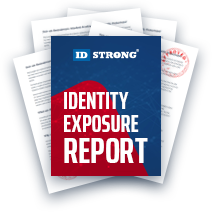What are AnyDesk Scams: Is AnyDesk Safe To Download?
Table of Contents
- By Bryan Lee
- Published: Oct 23, 2023
- Last Updated: Nov 03, 2023

Hackers and cybercriminals aim to steal as much information from their victims as possible. Unique technologies allow them to get creative and attack in ways their victims aren’t prepared for. AnyDesk is one such technology.
AnyDesk scams give hackers complete control over your device, allowing them to access your accounts, steal your files, and download malicious programs. However, it’s wrong to believe that AnyDesk or remote access applications are the real threat. These programs are heavily protected, but all the protections in the world don’t mean a thing if you willingly hand over control.
What is AnyDesk?
AnyDesk is a professional application that provides remote access to computers, laptops, and mobile devices. It’s available on Windows, macOS, iPhone, and Android platforms, giving the program a nearly universal reach. Hackers can rest assured that their target uses at least one of those options.
Similar solutions to AnyDesk are common among many companies due to how easily it allows IT members to address technological issues. Imagine the saved operating costs brought by reducing the size of your on-site support staff and relying on AnyDesk.
AnyDesk offers many enticing features, such as cloud compatibility, high frame rates while controlling another screen, and low latency. It’s a recognizable name in the remote access industry.
Is AnyDesk Safe?
If you download AnyDesk from its official sources, it’s a secure and indispensable part of your IT toolbelt. The application employs asymmetric key encryption, the most ironclad cryptographic protocol available today.
Outside parties are further excluded with Transport Layer Security 1.2 (TLS 1.2). The layperson can consider this technology as the beefed-up version of SSL certificates, which are already ubiquitously trusted across the web.
However, despite these many protections, the very existence of remote access technology gives cyber criminals a lot of room to play in. They can con people into handing over their unique access code or guide them to download a malicious look-a-like version of AnyDesk.
AnyDesk scams, like any tech support scam, lead to identity theft, blackmail, financial fraud, or reputational damages. Most hacker tactics rely on emotional manipulation, which puts the power to stay safe in your hands.
How Do AnyDesk Scams Work?
A woman in North Carolina was fleeced for $23,000 from an AnyDesk scheme. The attacker seized control of Karla Timpani’s computer and tricked her into believing she’d accidentally stolen thousands of dollars from Apple and would have to pay it back.
The attacker directed Timpani to purchase $7,400 worth of Apple gift cards and send him pictures of the items and receipts. However, the attack didn’t stop there. Knowing his scam was working, he once again tricked Timpani into thinking that a mistake had fraudulently deposited another $14,000 into her account. He demanded she pay it all back through Bitcoin.
Timpani believed this criminal’s lies because she could see the extra money in her bank account. The attacker took control of Timpani’s computer through AnyDesk and secretly transferred funds from Timpani’s savings to her checking account.
This is just one example of how an AnyDesk scam operates. Some schemes leverage your device as part of a larger scam, but many others simply do as much damage as possible before you take back control. Regardless of the strategy, all remote job scams are extremely dangerous and can lead to long-term consequences.
Every remote scam starts with the victim downloading some screen sharing or remote access program. Here are some common ways a cybercriminal might convince you to do so:
IT Support Scam
Electronic devices are expensive. Even the two-generation old iPhone 12 still retails at around $600. So, it’s understandably stressful when there’s a problem with one of our devices.
The IT support scam takes advantage of this anxiety and contacts you under the identity of a technical support team member. They say a dire problem might damage your computer or phone if it’s not dealt with immediately.
The hacker might explain a complex troubleshooting process before suggesting you give them remote access. If they’re lazy, they might skip this step and immediately ask you to download AnyDesk.
AnyDesk Financial Scam
Another type of attack involves impersonating a bank, debt collector, or other financial institution. The “representative” warns you that your account has been frozen or suspended because of a severe problem. Common problems hackers report are a substantially overdue balance or, ironically, warning signs of identity theft from your account.
Of course, you say there must be some mistake, and the fake representative proceeds to help you figure out the problem. At some point, they’ll ask for remote access to assist you better and take care of this as quickly as possible.
If you’re reluctant to give over control, the attacker might warn you that the issue becomes more challenging to fix the longer you wait.
The Amazon Scam
Over the past decade, Amazon has become an inseparable part of many lives, with roughly 230 million Americans having an account. Despite its success, there’s still an underlying sense of unreliability when shopping online that can come from packaging errors, shipping delays, and other problems.
Criminals contact random individuals reporting a complication with their Amazon account interfering with an upcoming delivery. The victims are excited about the package and quickly agree to anything to fix the issue. This trick is even more effective during the holiday season when people are buying time-sensitive gifts.
The attacker leads you to a remote access download so they can fix the problem themselves. After gaining control, the criminal might download malware, steal your financial information, or make fraudulent purchases on your account.
Remember that no Amazon employee will ever ask for control of your device. They have an entire library of step-by-step troubleshooting instructions and can verbally guide you through them.
How to Prevent AnyDesk Access to Avoid Scams?
Never using it or similar programs is an ironclad way to prevent AnyDesk scams. 99.9 percent of situations can be resolved without a third party controlling your device. However, there may be times when you’re required to download it for work or a legitimate emergency.
In these cases, you must exercise extreme caution in the entire process. Everything from the initial download, handing over your unique PIN, and monitoring the other party’s actions are possible danger spots.
Tip number one is to know the right place to download the application. A fake support representative may send you a link to a page other than AnyDesk’s official website. They’ll give an excuse for why their link looks different, like saying their company uses a free AnyDesk program.
It’s tempting to take their word for it, especially if you’ve seen AnyDesk’s price tag of $178.80 per year. However, if you absolutely need AnyDesk, only download it from AnyDesk’s site, which can be found at anydesk.com.
Situations where the attacker claims a problem with your account are easier to deal with. Before engaging any further, attempt to log into the account in question. Doing so will quickly reveal whether the representative is lying or not.
Even if you encounter a problem, call the provider back using their officially listed channels. Contacting them from your end guarantees you’re speaking to the right people.
What To Do If You’ve Been Scammed?
Getting back on your feet after getting scammed is challenging. People experience a profound sense of mistrust and have trouble collecting themselves. However, acting quickly is crucial when you’re trying to recoup financial losses and prevent further damage.
If the hacker accessed your payment methods, the first step is to contact the payment provider immediately, even if you haven’t noticed problematic transactions. You can set up alerts through the provider or try to discuss options for reimbursement. It may be impossible to recoup your entire loss and be prepared to hear some bad news.
You should consider initiating a credit freeze as well. This prevents any institution from requesting your credit report and opening accounts under your name. To start a freeze, contact one of the three major credit reporting bureaus (Equifax, TransUnion, & Experian) and request a freeze. You only need to do this at one because each bureau is required to pass on your request to the remaining two.
The next step is resetting the compromised device to eliminate malicious programs. It’s not as simple as turning it off and on again. Computers should have their storage drives wiped and operating systems uninstalled since some forms of malware can automatically reinstall themselves when an operating system boots.
AnyDesk Helps Keep You Safer, But You Must Remain Vigilant
AnyDesk is as secure as you can get against the current threat landscape. It uses the highest standard encryption technology and generates a random PIN for added protection. At the end of the day, cybersecurity’s greatest and most consistent threat has always been human error.
The technology that AnyDesk represents is just one of the many avenues for hackers to steal your data. Other threats, such as keyloggers, shoulder surfing, and spoofing, are equally dangerous. IDStrong has an extensive catalog of resources prepared to teach you how to defend yourself against the many threats you’ll face online!



















































































































